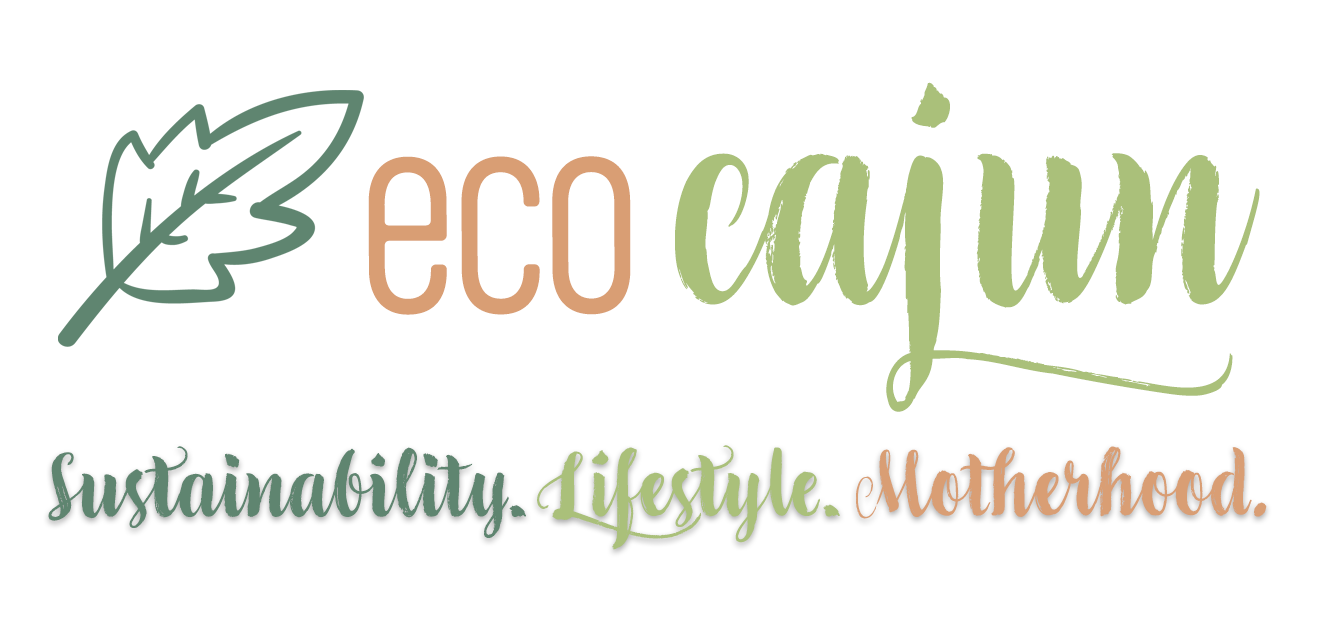PlanLafayette week is wrapping up here in town, and with the release of the draft comprehensive plan, it's a big week for our future. There are four overarching themes of the plan, one of which is Reenvisioning Natural Resources. Last week, PlanLafayette put on a breakfast to discuss natural resources and how better planning makes for a better city. And gave out stickers with cute leaves on them!
Now, I've had mixed feelings on environmentalism, recycling and natural resources in the realm of Lafayette. It's just not seen as an important priority by the majority of the residents, and it's evident. We have a recycling company who is mediocre at best. Recycling bins are not emptied on schedule. There aren't many options for recycling; if you live outside the city limits, you're SOL and you'll just have to trash everything if you aren't willing to drive into a seedy part of town to dump your plastic, paper, glass and aluminum. Even if you live inside the city limits, but aren't in a single-family household, you have to go out of your way to recycle. Many times the solution to a problem is "fix it now", without thinking of the best or most responsible way to fix something that will be a better long-term solution.
But I was very interested in attending this breakfast, hearing what other like-minded people think, and hearing what may be in store for Lafayette's future. The morning started with a presentation by LEED-accredited, New Orleans-based landscape architect Dana Brown. She discussed green infrastructure and natural hydrology versus traditional drainage. This is something I didn't learn until I was probably in college, but not everywhere has coulees - cement-lined creeks, basically. However, Lafayette has them everywhere, to collect and funnel rainwater to a specific point, instead of letting it run its natural course. Coulees turn water into runoff, and cause different problems at different points in the system. Natural hydrology retains trees and keeps natural banks, and allows rain to fall and drain off naturally. Coulees strip rainwater of the power to filter pollutants and recharge groundwater. Dana made the point that it's actually more expensive to conduct a coulee system, because essentially you are paying to move water around. It's cheaper to address it where it falls. Limiting the amount of paved surface also allows rainwater to fall and drain naturally.
As a landscape architect, Dana showed examples of natural hydrology versus traditional drainage and showed how cities can still function and not flood while eliminating the coulees. One example she showed was a recent upgrade at the Baton Rouge airport that took out a coulee and made a natural creek. She also showed examples of how pervious concrete is a better alternative to standard concrete, because it's more porous and allows water to seep through to the ground, while still maintaining structure and integrity.
After Dana's presentation, Greg Manuel, Dave Welch and Jerry Vascou, all leaders in the Lafayette business community, spoke about how they want to see Lafayette become greener. One great point that Greg made, and that everyone agreed with, is that we need small victories. A miracle doesn't have to happen overnight to make progress, but small victories help get us closer to the goal of being greener. He mentioned that recycling, especially, is an issue of civic pride. And he mentioned that a lot can be accomplished without needing to spend a lot of money. Jerry added that someone's first impression of our city is important. Do we want to be considered ugly? That could deter someone from wanting to transfer here over somewhere else.
Some ideas floated around about how to improve Lafayette's image, from painting utility boxes to look more like art, to enforcing litter ordinances.
An idea I thought of about enforcing litter ordinances comes from the fact that Louisiana once had a litter hotline. The same principle could be updated today to be a number you text to report someone littering, or a Twitter account manned by the public works department that would accept reports and take action.
One idea that was discussed a lot is how to gain traction in city-wide recycling. Many people feel disconnected from the idea of recycling. Many of the people attending agreed that education at a young age is extremely important in teaching people about recycling. I know that in my own education and upbringing, recycling was always included. My parents recycled and taught me the proper way to fill the bins. In school we learned small actions, such as cutting six-pack rings, from 50 Simple Things Kids Can Do to Save the World. And Earth911 recently featured tips on how to get children to recycle.
One man in the audience stated that 55% of litter comes from males aged 15 to 30, and that 25% of litter is unintentional. (The closest backup I could find for this statistic comes from a 2010 report from Don't Trash Arizona that states single males 18-24 were the biggest group of litterers, and 40% is accidental.)
But when educating anyone, child or adult, it's important to connect a reason for them to WANT to recycle. Many people don't feel any benefit from it, and don't want the added burden of doing something outside their routine. I was discussing this with a few people after the speakers concluded, and I thought back to when we visited San Francisco. There, recycling is much more common, especially in public areas. Every public trash can had a recycling bin right next to it. It requires no extra effort on anyone's part to recycle what they can. All you have to do is move your hand over a foot at the most. But here, there are no public recycling bins, and no one (outside of me and a few other people) is willing to haul their recyclables home or somewhere else. Cigarette outposts are also easy solutions that don't detract from the scenery and make a regular post actually functional. Simple steps like these can really elevate the level of recycling.
When discussing ideas on how to engage citizens in recycling, I thought of the Litterati movement. The concept is simple and focuses on reducing litter and promoting recycling – with Instagram. To participate, take a picture of litter you find anywhere, post it on Instagram with the hashtag #litterati, and then responsibly dispose of the item. If it's recyclable, recycle it. If you can safely pick up food and access a compost bin, do that. Geotagged posts help the Litterati organization target hot spots of litter and work with companies in the area to solve the problem for real. I recently shared a photo of a styrofoam to-go box with food still inside. I was unable to recycle or compost anything, but I at least moved it off of the shrub it was sitting on and put it in the dumpster. To me, this concept lends itself well to the age groups of people who recycle the least, and helps to add engagement to a mundane task of getting rid of litter. Maybe by doing something similar with a local spin, local residents can feel more connected to this city and contribute to its cleanliness.
During the breakfast, I had so many ideas floating through my head, and I wanted to immediately write everything down and start making changes in Lafayette. After last Mardi Gras, I was inspired to organize some kind of recycling pickup to follow the parades this year, because of the vast amounts of litter that Mardi Gras inherently creates. The beads could be picked up and donated to nonprofit organizations, who then clean and resell them each year. The plastic, beer cans and paper could be picked up for recycling. Any other waste could be picked up for trash. Needless to say, I did not make it happen this year, but I haven't wavered on my desire to be the one to organize something like this for future years, with the dream that it would happen every year after the parades finish rolling.
I may have mixed feelings and many frustrations about recycling in Lafayette, but I will always feel inspired to do more to help this city move toward being greener and more beautiful. And I hope that I can help inspire others to be more engaged, so we don't have a city full of complacent residents and a recycling company that doesn't seem to care much about making an impact. Recycling and environmentalism is a benefit to EVERYONE.
Published in Times of Acadiana
Written for Schwinn Bikes
Popular Posts
-
Eye care is an important part of my daily routine, and it's one that can be greened in a few ways, without compromising health factors. ...
-
Part of being environmentally friendly is working to protect our land and natural resources, especially from aggressive methods that can cau...
-
So, I haven't succumbed to the Pokemon Go craze, but I love the positives that have come from everyone playing, from increased exercise ...
Copyright Eco Cajun. Sophie Template designed by Georgia Lou Studios







2 comments
Hey Caitlin,
Thanks so much for sharing the Litterati story. We really appreciate it. Just one slight correction, only those photos posted on Instagram with "#Litterati" are picked up by our database. (We're not yet working on Twitter).
That said, the most important thing is that people are contributing to the cleaning the planet. Anyway they choose to participate is good with us.
Sincerely,
Jeff
Founder, Litterati
Great to hear from you, Jeff! Thanks for pointing that out! The Twitter posts are so great for helping to spread the word at least.
Caitlin